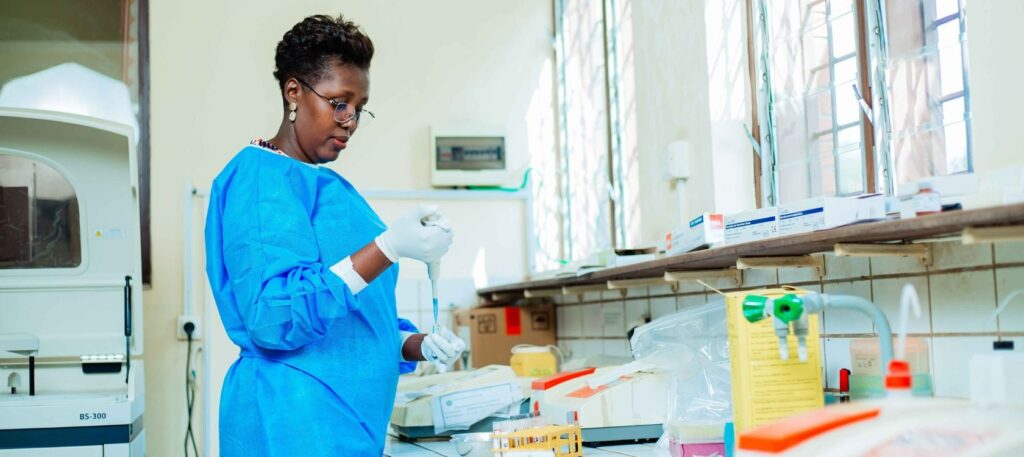Burundi’s healthcare demands are increasing, with a prevalence of both communicable diseases (such as malaria and hepatitis) and non-communicable diseases (like diabetes and cardiovascular conditions). Compounding the situation is a scarcity of healthcare professionals, as the country had only 0.1 doctors per inhabitant in 2020, compared to an average of 4.5 across the continent.
What’s more, training opportunities are lacking, and the country faces difficulties ensuring crucial support for quality care, such as adequate transfusable blood components (with a shortage of around 30% in comparison to demand) and reliable medical laboratory procedures.
A Comprehensive Approach
Recognizing health as a key priority, national authorities have made it a focal point in the Health Sector Strategy. The “Amagara Yacu – Our Health” project aims to enhance the quality of primary healthcare services and epidemiological surveillance. This will be achieved through strengthening human resources at the National Institute for Public Health (INSP) and bolstering epidemiological surveillance capabilities at the National Laboratory for Public Health (LNSP).
The project will also support the blood transfusion sector by optimizing blood collection, management, and the production of labile blood products in collaboration with the National Blood Transfusion Centre (CNTS). AFD has provided a €10 million grant to support this project, which will be executed by a consortium led by the French Red Cross and the Burundi Red Cross, in partnership with AMREF and Mérieux Foundation, over a duration of 36 months.
Addressing Gender Inequalities
The shortage of healthcare personnel, exacerbates inequalities in accessing care, particularly for women. To address this issue, the project will incorporate gender considerations and prioritize the healthcare needs of women and children in the provided training programs to enhance their care.
Furthermore, strengthening the capacities of the LNSP and the human resources at the INSP will improve access and the quality of care for women, girls, and other marginalized groups. This will be achieved by reinforcing epidemiological surveillance and diagnostic capabilities. Additionally, the project will place particular emphasis on recruiting young women to the training program.
Overall, the project aims to train over 700 INSP students, provide support to health workers in the provinces of Ngozi, Muramvya, and Bujumbura, and offer capacity-building opportunities to 175 community health workers and 500 community relays.
Source link : https://www.afd.fr/en/actualites/prioritizing-burundis-health-sector
Author :
Publish date : 2023-06-08 07:00:00
Copyright for syndicated content belongs to the linked Source.
